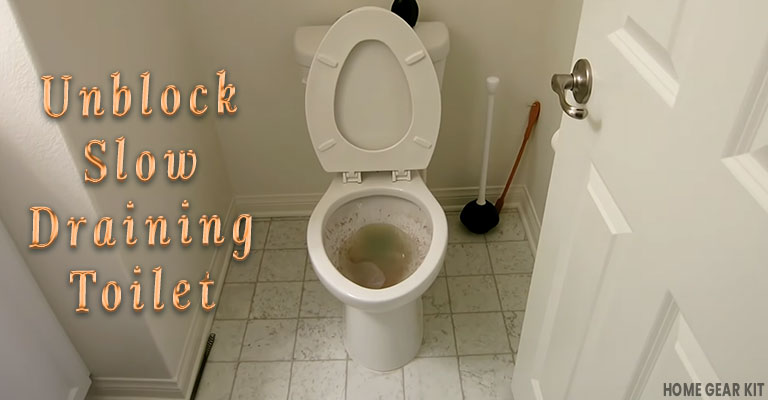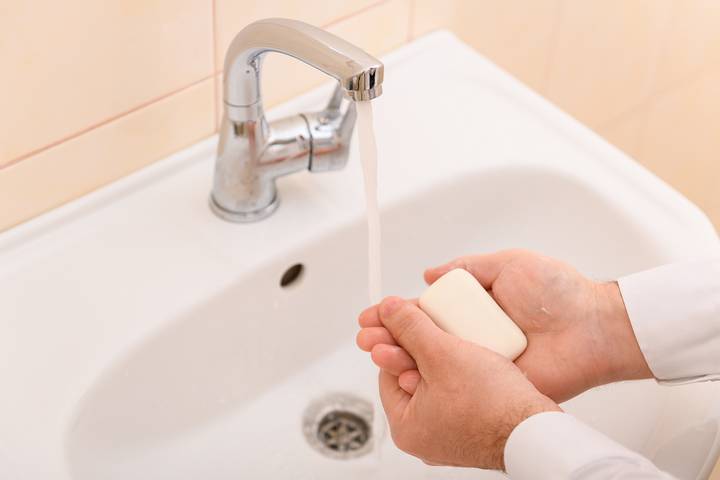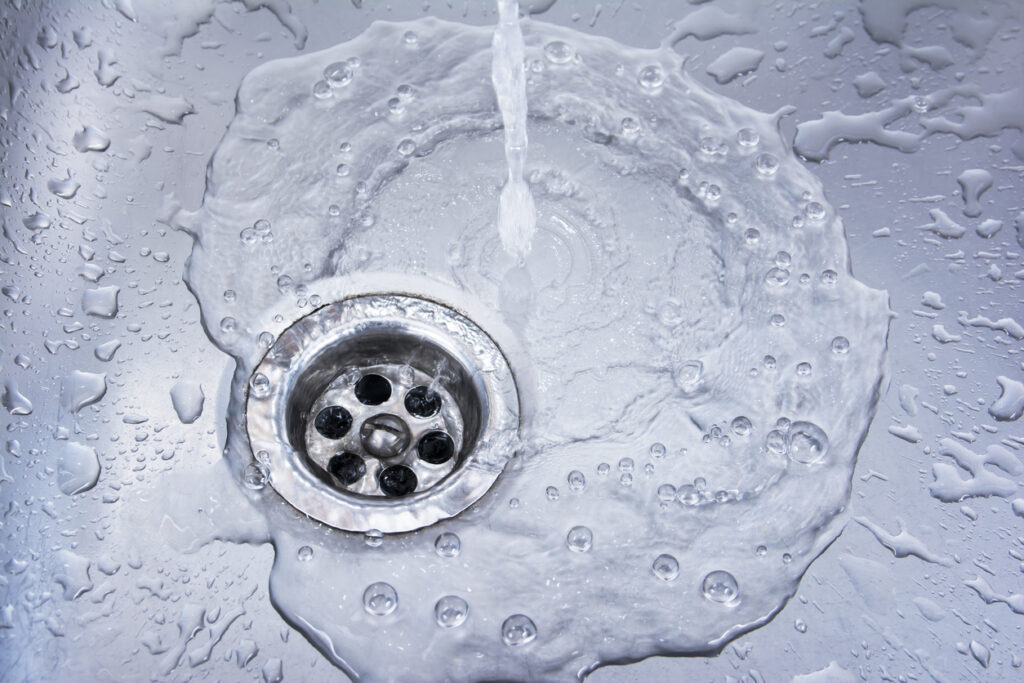Dealing with a slow draining bathroom sink and toilet is a frustrating and common issue that many homeowners face. Not only does it disrupt your daily routine, but it can also lead to more serious plumbing problems if left unaddressed. If you're tired of watching the water slowly drain away, it's time to take action. In this article, we will cover the top 10 solutions for fixing a slow draining bathroom sink and toilet.Slow Draining Bathroom Sink and Toilet: A Common Household Problem
Before we dive into the solutions, it's important to understand the root cause of the problem. A slow draining bathroom sink and toilet is typically caused by a clog or blockage in the pipes. This can be due to a variety of factors such as hair, soap scum, or foreign objects getting stuck in the pipes. Here are some steps you can take to fix the issue: 1. Use a Plunger - One of the easiest and most effective ways to unclog a sink or toilet is by using a plunger. Make sure to cover the overflow drain with a wet cloth and plunge vigorously until the clog is dislodged. 2. Try a Drain Snake - If the plunger doesn't work, you can try using a drain snake to reach deeper into the pipes and remove any stubborn clogs. Simply insert the snake into the drain and turn it to break up and remove the blockage. 3. Use Baking Soda and Vinegar - These two household ingredients can be a powerful combination for unclogging drains. Pour half a cup of baking soda into the drain, followed by half a cup of vinegar. Let it sit for 30 minutes and then pour hot water down the drain to flush out the mixture. 4. Hot Water and Dish Soap - Another simple solution is to pour a pot of hot water mixed with dish soap down the drain. The soap will help to break down any grease and grime that may be causing the clog. 5. Clean the P-Trap - The p-trap is a curved section of pipe under the sink that is designed to trap debris and prevent it from entering the main drain. However, this can also become clogged over time. Use a wrench to remove the p-trap and clean out any debris before reattaching it.How to Fix a Slow Draining Bathroom Sink and Toilet
If the above methods don't work, there may be a more serious issue causing the slow drainage. Here are some troubleshooting tips to help you identify the problem: 1. Check Other Drains - If multiple drains in your bathroom are slow draining, the issue may be with the main drain line. In this case, it's best to call a professional plumber to inspect and fix the problem. 2. Look for Odors - Foul smells coming from your drains can indicate a buildup of organic material or a blocked vent pipe. You can try using a drain cleaner specifically designed to eliminate odors, but if the smell persists, it's best to call a plumber. 3. Check the Vent Pipe - The vent pipe is responsible for equalizing pressure in your plumbing system and allowing sewer gases to escape. If it becomes blocked or damaged, it can cause slow draining and bad odors. A plumber can assess and fix any issues with the vent pipe.Troubleshooting Slow Draining Bathroom Sink and Toilet
Understanding the common causes of a slow draining bathroom sink and toilet can help you prevent future clogs and issues. Here are some potential reasons for the problem: 1. Hair and Soap Scum - These are the most common culprits for clogged drains in the bathroom. Make sure to regularly clean the drain stopper and use a hair catcher to prevent these from going down the drain. 2. Foreign Objects - Accidentally dropping small objects like jewelry or cotton swabs into the sink or toilet can easily cause a blockage. Be mindful of what you're flushing or washing down the drain. 3. Tree Roots - In some cases, tree roots can grow into your sewer line and cause blockages. This is a more serious issue that may require professional plumbing services to fix.Causes of Slow Draining Bathroom Sink and Toilet
Here are a few additional tips to help you unclog and maintain your bathroom sink and toilet drains: 1. Use a Drain Cover - A drain cover not only helps to catch hair and debris, but it can also prevent foreign objects from accidentally falling into the drain. 2. Avoid Chemical Drain Cleaners - While they may seem like a quick and easy solution, chemical drain cleaners can actually cause more harm than good. They can damage your pipes and may not be effective for more serious clogs. 3. Regularly Clean Your Drains - A little bit of prevention can go a long way in avoiding slow draining bathroom sinks and toilets. Make it a habit to clean your drains and pipes regularly to keep them free from buildup.Tips for Unclogging a Slow Draining Bathroom Sink and Toilet
If you're a handy homeowner, you may prefer to try DIY solutions before calling a professional. Here are some more DIY methods for unclogging a slow draining bathroom sink and toilet: 1. Wet and Dry Vacuum - If you have a wet and dry vacuum, you can use it to suck out any debris or clogs from the drain. 2. Boiling Water and Salt - Boil a pot of water and mix in half a cup of salt. Pour this down the drain and let it sit for a few hours before flushing it with hot water. 3. Wire Hanger - Straighten out a wire hanger and use it to fish out any clogs or debris from the drain.DIY Solutions for Slow Draining Bathroom Sink and Toilet
If all else fails, it's best to call a professional plumber for help. They have the expertise and equipment to properly diagnose and fix the issue. Here are some services they may offer for slow draining bathroom sinks and toilets: 1. Hydro Jetting - This method involves using high-pressure water to clear out clogs and buildup in the pipes. 2. CCTV Inspection - A plumber may use a small camera to inspect the inside of your pipes and identify the cause of the slow draining. 3. Pipe Replacement - In some cases, the pipes may be too damaged or corroded to be effectively unclogged. A plumber may recommend replacing them to solve the issue.Professional Plumbing Services for Slow Draining Bathroom Sink and Toilet
Once you have successfully unclogged your bathroom sink and toilet, it's important to take steps to prevent future issues. Here are some prevention methods to keep your drains running smoothly: 1. Regular Maintenance - As mentioned before, regular cleaning and maintenance of your drains can prevent buildup and clogs. 2. Use Natural Cleaners - Instead of harsh chemical drain cleaners, opt for natural alternatives like vinegar, baking soda, and hot water. 3. Be Mindful of What You Put Down the Drain - Avoid flushing or washing down items that can cause clogs, such as feminine hygiene products, paper towels, and cooking grease.Prevention Methods for Slow Draining Bathroom Sink and Toilet
Aside from clogs and blockages, a slow draining bathroom sink and toilet can also be caused by other issues. Here are some common problems to be aware of: 1. Faulty Drainage System - If your bathroom sink and toilet are consistently slow draining, there may be an issue with your drainage system that requires professional inspection and repair. 2. Improper Slope - The pipes in your plumbing system need to be installed at a specific slope to allow for proper drainage. If this slope is not correct, it can lead to slow draining and other issues. 3. Damaged Pipes - Over time, pipes can become damaged due to age, corrosion, or other factors. This can lead to leaks, clogs, and slow draining.Common Issues with Slow Draining Bathroom Sink and Toilet
Lastly, it's important to be aware of the signs that indicate your bathroom sink and toilet may have a slow draining issue. Some common signs to look out for include: 1. Standing Water - If water is pooling in your sink or toilet, it's a clear sign that the drain is not functioning properly. 2. Gurgling Noises - If you hear gurgling noises coming from your drains, it could be a sign of a blockage or ventilation issue. 3. Foul Odors - As mentioned before, bad smells coming from the drain can indicate a blockage or other issue. Dealing with a slow draining bathroom sink and toilet may seem like a daunting task, but with the right knowledge and methods, you can easily resolve the issue. Remember to regularly maintain your drains and be mindful of what you put down them to prevent future problems. And if all else fails, don't hesitate to call a professional plumber for assistance.Signs of a Slow Draining Bathroom Sink and Toilet
Why Your Bathroom Sink and Toilet Might be Draining Slowly

When it comes to maintaining a clean and functional bathroom, there are few things more frustrating than a slow-draining sink or toilet. Not only can this issue be unsanitary, but it can also be a sign of a larger problem within your plumbing system. In this article, we'll explore the main causes of slow-draining sinks and toilets and provide tips for preventing and solving these issues.
The Build-Up of Hair and Debris

One of the most common reasons for a slow-draining sink or toilet is the accumulation of hair, soap scum, and other debris in the drain. Over time, these substances can create a clog that restricts the flow of water and leads to slow draining. To prevent this issue, regularly clean your bathroom drains with a mixture of hot water and baking soda. This will help dissolve any build-up and keep your drains running smoothly.
Mineral Build-Up

In areas with hard water, mineral deposits can build up in your sink and toilet drains, leading to slow draining. This is especially common in older homes with plumbing systems that have not been updated. To combat this issue, consider installing a water softener to prevent the build-up of minerals and keep your drains functioning properly.
Sewer Line Issues

In some cases, a slow-draining sink or toilet can be a sign of a larger problem within your sewer line. Tree roots, debris, and other obstructions can cause blockages in your sewer line, leading to slow draining and other plumbing issues. If you suspect that your sewer line may be the culprit, it's important to contact a professional plumber to properly diagnose and fix the issue.
Improper Venting

In order for your plumbing system to function properly, it needs to be properly vented. When there is a lack of ventilation in your bathroom, it can create a suction effect that restricts the flow of water and leads to slow draining. To prevent this issue, ensure that your bathroom has adequate ventilation through a window or vent fan.
Conclusion

A slow-draining sink or toilet may seem like a minor inconvenience, but it can actually be a sign of a larger problem within your plumbing system. By regularly maintaining your drains and addressing any issues promptly, you can prevent slow draining and keep your bathroom functioning properly. If you are experiencing persistent slow draining, it's important to consult a professional plumber to properly diagnose and solve the issue.





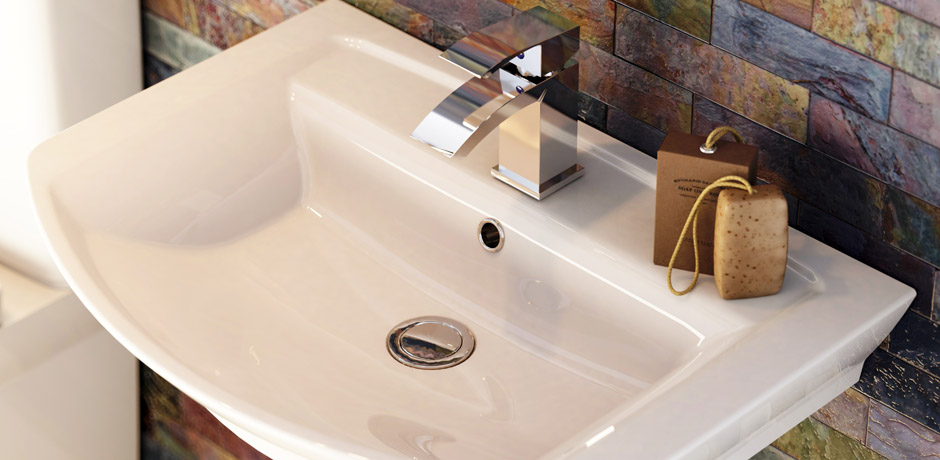

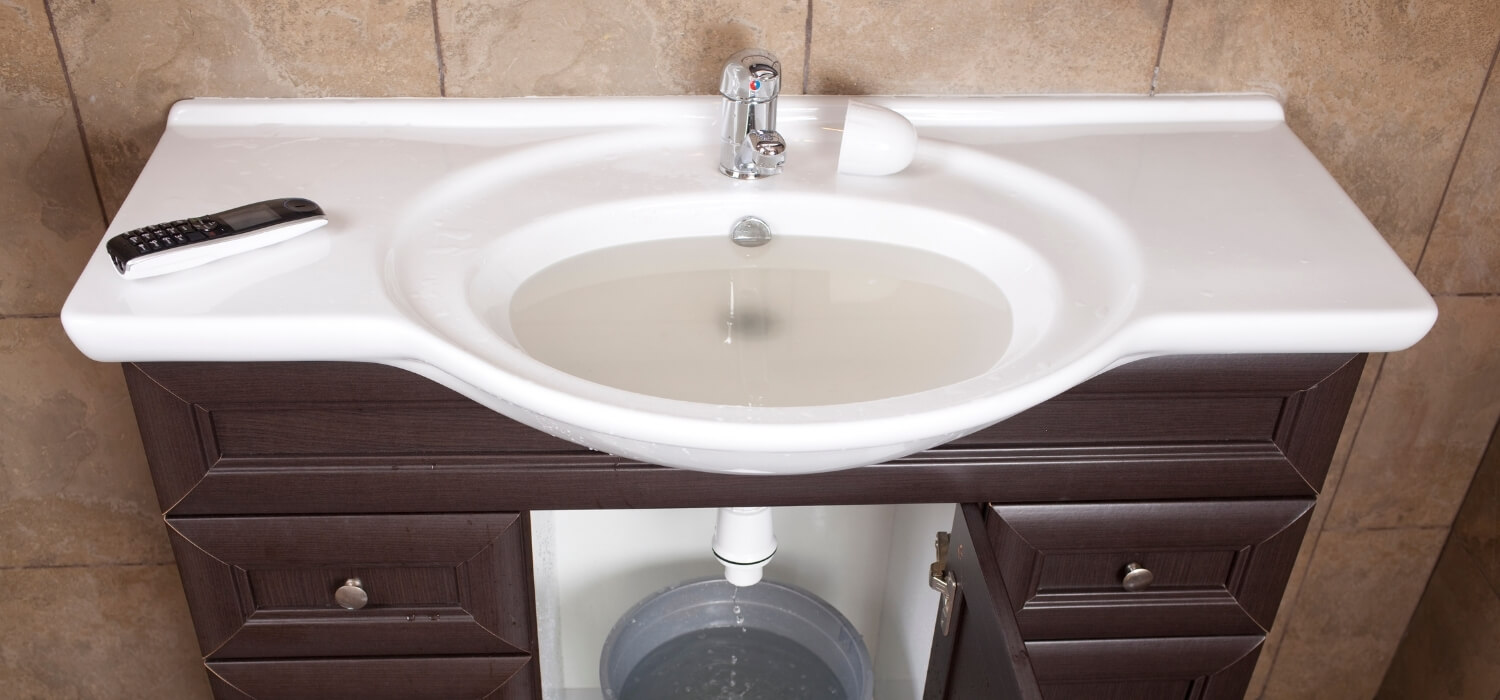









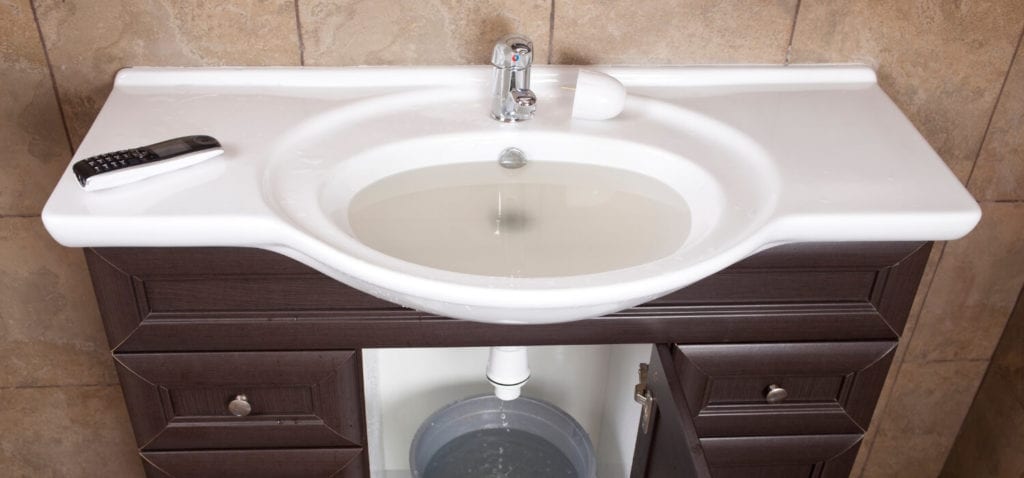






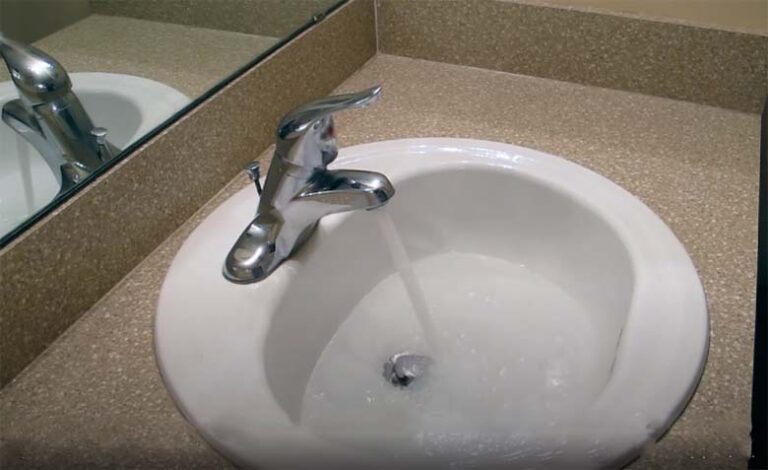






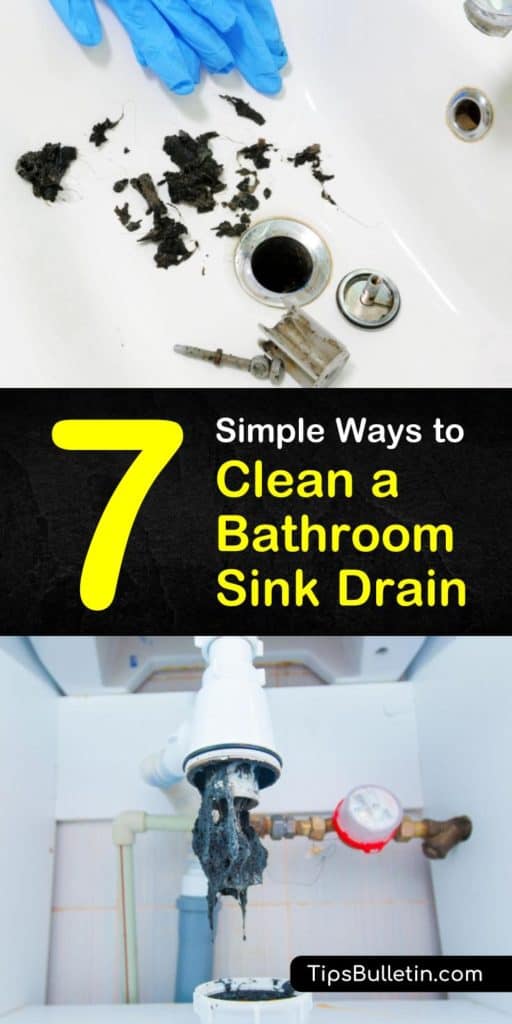

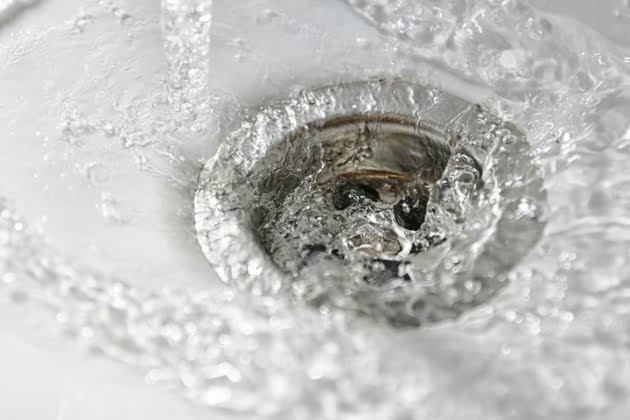
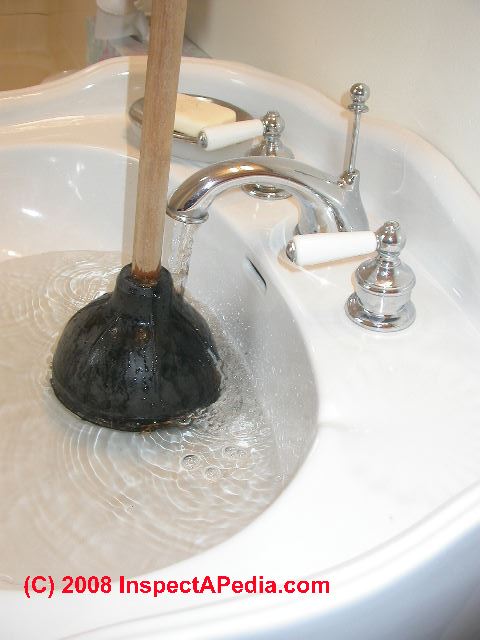


:max_bytes(150000):strip_icc()/Five-Ways-to-Fix-a-Slow-Sink-Drain-03-24c1f6dd477d46b9b5d1f70952a76933.jpg)




